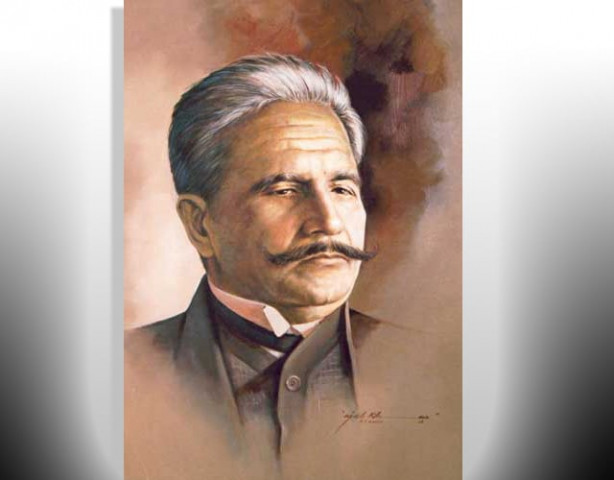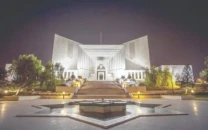Iqbal: A new beginning, an end to misconceptions
Iqbal was not a secularist, or a socialist, or opposed to democracy.

“It is a fact that a non-Muslim cannot be head of the administration in a Muslim State,” said the leader of the Congress, Sris Chandra Chattopadhya, in the Constituent Assembly of Pakistan on March 12, 1949. Prime Minister Liaquat Ali Khan replied that this was not so.
True to this promise, non-Muslims remained legible for the office of prime minister in all drafts of the constitution produced by the first constituent assembly right up to its dissolution in 1954. Significantly, these drafts always mentioned that Pakistan was an Islamic state, and not a secular state.
On this ground, the founding parents of Pakistan stand in opposition to Iskander Mirza, Ayub Khan and Zulfikar Ali Bhutto who promulgated the subsequent constitutions in Pakistan, respectively in 1956, 1962 and 1973. Those constitutions required that the prime minister should be a Muslim. However, the founding fathers of Pakistan had a different concept of an Islamic state.
This is where there is a major difficulty in understanding Allama Iqbal. We tend to presume that when he advocated an Islamic state, it would have meant that non-Muslims could not have equal rights. This leads to three other misconceptions, which need to be dispelled right away.
They are: Iqbal was a secularist in some ways, or a socialist, or that he was opposed to democracy.
Misconception one: Iqbal supported secularism
Due to our misconception of an Islamic state, some of us are led to believe that all references to universal ideals in the poetry and prose of Iqbal amounted to an affirmation of secularism.
The truth is that Iqbal clarified his position on this issue repeatedly, beginning with his groundbreaking paper in 1908:
“…according to the law of Islam there is no distinction between the Church and the State.” (‘Political Thought in Islam’; 1908)
Misconception two: Iqbal was a socialist
The idea that Iqbal was a socialist was first proposed by a journalist in 1923, and Iqbal refuted it immediately in a public statement. However, since many people believe that socialism and capitalism are the only options available to human mind, they tend to interpret all references to social justice in Iqbal’s writings as a partial approval of socialism. His position on this issue is best represented by his own words:
“Both nationalism [secularism] and atheistic socialism, at least in the present state of human adjustments, must draw upon the psychological forces of hate, suspicion, and resentment which tend to impoverish the soul of man and close up his hidden sources of spiritual energy.” (The Reconstruction of Religious Thought in Islam; 1934).
Misconception three: Iqbal was opposed to democracy
The most widespread and bizarre misconception is that Iqbal was opposed to democracy. A few of his verses are lifted out of context and quoted with complete confidence to support this assertion. Of course, the most infamous is the Urdu couplet which could be translated as: “Democracy is a form of government in which people are counted but not weighed.” Nobody bothers to look up the preceding couplet in the poem, or the footnote, where it is clearly mentioned that Iqbal is quoting a French novelist, Stendhal. Iqbal’s own opinion on the matter was:
“Democracy, then, is the most important aspect of Islam regarded as a political ideal.” (‘Islam as a Moral and Political Ideal’; 1909)
The promise
It may seem to be a contradiction that Iqbal believed in democracy and denounced theocracy, but was also opposed to secularism and socialism.
If this is a contradiction, it is also reflected in the entire history of the Muslim world since 1954 (except some Arab states). Unlike India, Muslim countries have not had smooth runs of democracy despite being free for so long. At the same time, they are equally unwilling to replicate the kind of monarchy introduced in some Arab states by European powers during the First World War.
So what do we want and how can it be achieved?
This is the enigma which Iqbal promises to solve for us. Perhaps that is why he didn’t die. He is back.
_________________________________________________________
This is a weekly web feature that will appear on The Express Tribune website.
Khurram Ali Shafique is the author of Iqbal: an Illustrated Biography (2006) and offers online courses in Iqbal Studies for Iqbal Academy Pakistan at Marghdeen Learning Centre.
Check it out
Useful resources for Iqbal Studies, including free online versions of the works of Iqbal with English translations, are available on the official website of Iqbal Academy Pakistan.



















COMMENTS
Comments are moderated and generally will be posted if they are on-topic and not abusive.
For more information, please see our Comments FAQ